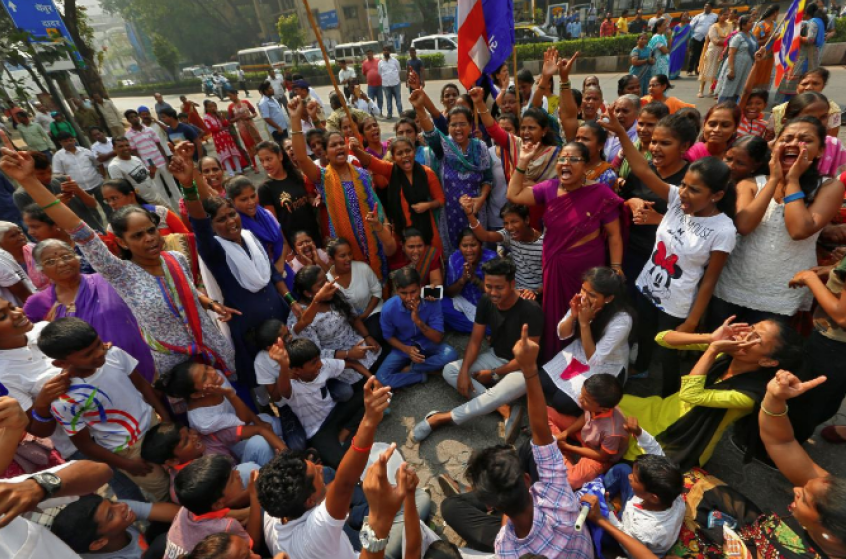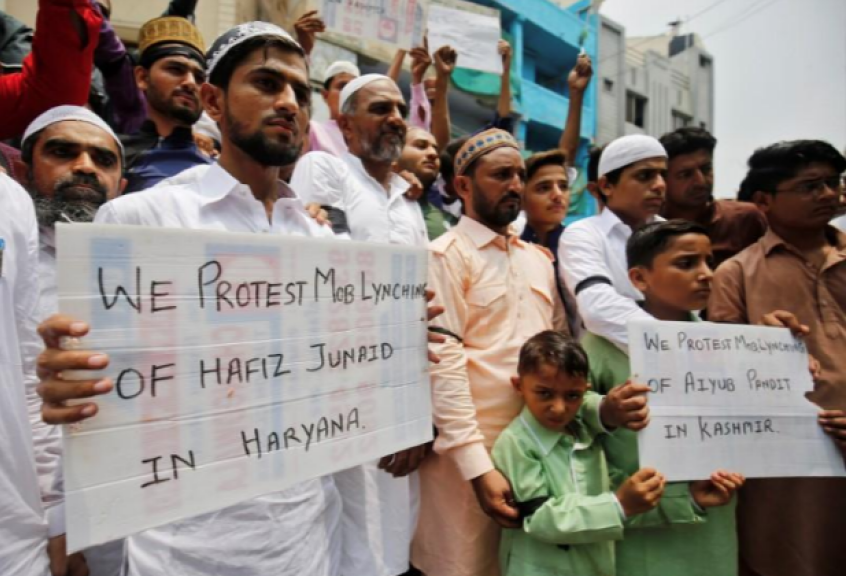There's quite possibly nowhere in the world where the religious landscape is as complex as it is in India. Hinduism is the dominant religion at nearly 80 per cent of the population, but there's a substantial Muslim minority – more than 14 per cent – with more than 8 million Christians and 6 million Sikhs.
But those numbers don't begin to do justice to the variety of India's faiths and to the way belief is woven into every part of life. To be an effective Christian pastor, evangelist and activist in India requires deep sensitivity to context alongside a resolute commitment to making a difference.
And it's not only the religious context. India is one of the most unequal countries in the world, as any tourist can see. Dazzling wealth – there were 17 new billionaires last year, and 70 new millionaires every day – sits alongside absolute destitution. Education, healthcare and opportunities are all unevenly distributed. Women are still deeply disadvantaged.

And the caste system, identified most obviously with Hinduism but present in Islam and Christianity as well, is at the root of some of the deepest and most pernicious forms of discrimination. 'Dalits' – formerly known as 'Untouchables', below the lowest rung of the caste ladder, and tribal people can experience discrimination that's damaging both practically and psychologically. It's not just that they are poorer, have worse health and die sooner – it's that they think they deserve it.
These are the contexts in which Joseph D'Souza, a bishop in the Church of the Good Shepherd and president of the All-India Christian Council, founded the Dalit Freedom Network to campaign for poor and marginalised people. It's just been renamed and is now the Dignity Freedom Network – and the new name is significant.
'We began to understand what Dalits are looking for. The clear, single most important outcome is dignity,' he tells Christian Today.
DFN consulted widely about the word 'dignity'.
'It was clear that it gives to the every human being the knowledge they were created in God's image,' D'Souza says. 'We have to figure out how to have a paradigm shift in our minds. The loss of dignity, the dehumanisation that tells them they are not equal to privileged castes because of their moral character, what they've done in a past life, etc – that is an assault on who you are as a human being. We need to reconstruct in our own minds and hearts that we are created in the image of God and that if we were the only ones in the world, Jesus would have died for us.'
It's a message, and a ministry, that is deeply attractive to India's Dalits. The Good Shepherd Church recognises that this presentation of the Jesus of the Bible resonates with the people. The church is known as a church that cares deeply about women's rights. So, says D'Souza, even upper caste women freely decide to love and follow Jesus.
Hinduism is one of the world's most ancient religions and caste dates back thousands of years. But another facet of the religious kaleidoscope is the rise of a particular kind of Hinduism during the last few years. It's nationalist, fundamentalist and intolerant – and it's propelled the BJP government of Prime Minister Narendra Modi to power. This assertive brand of Hinduism is behind anti-conversion laws in several states and a 'reconversion' programme aimed at turning Muslims and Christians – regarded as lapsed Hindus by extremists – back to what is claimed to be the faith of their ancestors. It's also seen outbreaks of violence directed at Dalits and Muslims accused of killing or eating cows, Hinduism's sacred animal – and in May last year the federal government attempted to ban the sale of cattle for slaughter altogether. It is already illegal in many Indian states.

As D'Souza says: 'In the last few years, radical groups have felt emboldened by those in power. The "mobocracy" is an increasing phenomenon and among its targets are Christians, Hindu intellectuals and Muslims.
'The demonisation of Christians has increased – In Jharkand there has been a massive clampdown on every NGO, many of them Christians. There is a propaganda machine that says Christians are involved in forced or fraudulent conversions. The language, the media are demonising Christians.'
The accusation of forced conversion, he says, is nonsense.
'The reins of political power are in the hands of Hindus. How is it possible, when they have had all the power since independence?
'There are anti-conversion laws in seven or eight states and there has not been a single conviction.'
The campaign against Christian organisations, he says, has had serious consequences: 'In the last four years, 20,000 NGOs have lost their licences and 1.25 million people have lost their employment.'
And more widely: 'Radicalised Hindus are banning the slaughter of cattle, Dalits are being flogged and lynched – the livelihood of millions is being destroyed.'
As well as helping mitigate the consequences of poverty and religious intolerance, DFN has a programme targeted at victims of ritual prostitution. For centuries, poor Dalits have dedicated their daughters as 'Devadasis' or sacred prostitutes. Though in theory the practice is banned, in the states of Odisha, Karnataka and Andra Pradesh there are estimated to be around 150,000 women who have grown up through the Devadasi temple system. DFN aims to help stamp out the practice and D'Souza says its teams have stopped nearly 1,500 dedications in the last five years. DFN workers are in touch with 10,000 prostitutes who have chosen leaders from among themselves.
'No society will accept them and the finance NGOs will give is not enough to support them,' D'Souza says. 'We offer vocational training and help them create small businesses. We go around festivals and challenge families, telling them what the law is – they take loudspeakers and say, "Don't offer your daughters, this is not legal."'
At the moment the Good Shepherd Church's anti-trafficking unit has placed highly vulnerable girls in 50 shelters. It's constructing another for 150 girls.
And at the root of all the discrimination faced by Dalits, he says, is caste. It's the caste system itself that has to change – and contrary to what's often argued, he believes it would not mean the end of Hinduism, which is more varied and adaptable than it might appear.
'The struggle for dignity and freedom is not going to end until Dalits throw off the shackles of caste in one way or another,' he says. It is the 'single biggest human rights issue in the history of the world'.
D'Souza's DFN is at the sharp end of helping improve life for people on the ground. He says: 'We want people to engage with our on-the-ground programme of Indian workers. Partner with us, graduate a new generation who dream of being police officers, doctors, politicians. We have 27,000 children in school, 10,000 of whom have no scholarships. We are trusting and praying that British Christians will get involved.'
In the West, there's sometimes even today a tension between evangelism and social action. India is proof that that conflict is absurd. In its schools and outreach projects, the church does not proselytise – 'When the children grow up, what they do is between them and God. We don't ask them to come to church, that's proselytism,' says D'Souza. But the church still grows, because of the attractiveness of what it does for the lowest and weakest.
Dignity – the acknowledgment of every person's freedom, worth and potential – does not seem much to ask. But for those trapped in a system and a mindset that sees them as fundamentally inferior from the moment they're born, it's revolutionary.
For more about the Dignity Freedom Network click here.
Follow Mark Woods on Twitter: @RevMarkWoods













